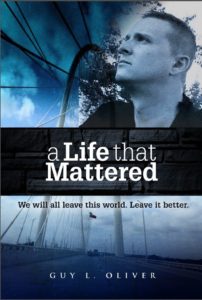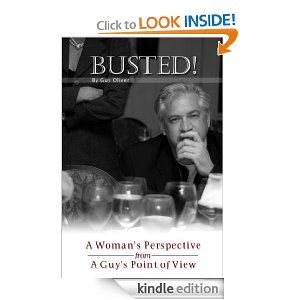A thing like prison invariably changes a man. For better or worse, he is different after the fact. Most leave these institutions determined to make a change but most also return to old patterns of behavior and we are, in part, culpable.
“But the point which drew all eyes, and, as it were, transfigured the wearer,–so that both men and women, who had been familiarly acquainted with Hester Prynne, were now impressed as if they beheld her for the first time,–was that SCARLET LETTER, so fantastically embroidered and illuminated upon her bosom. It had the effect of a spell, taking her out of the ordinary relations with humanity, and inclosing her in a sphere by herself.
‘She hath good skill at her needle, that’s certain,’ remarked one of the female spectators; ‘but did ever a woman, before this brazen hussy, contrive such a way of showing it! Why, gossips, what is it but to laugh in the faces of our godly magistrates, and make a pride out of what they, worthy gentlemen, meant for a punishment?’
‘It were well,’ muttered the most iron-visaged of the old dames, ‘if we stripped Madam Hester’s rich gown off her dainty shoulders; and as for the red letter, which she hath stitched so curiously, I’ll bestow a rag of mine own rheumatic flannel, to make a fitter one!’
‘O, peace, neighbours, peace!” whispered their youngest companion. ‘Do not let her hear you! Not a stitch in that embroidered letter, but she has felt it in her heart.’”
– Excerpt The Scarlett Letter
Nathanial Hawthorne
When a prisoner repents, pays his penance, and is once again released to rejoin us, friends and family rejoice and God forgives—but society does not. A felony conviction becomes today’s scarlet letter for all to see.
While, ultimately, it is the individual who must do the hard work of reform, it is we, his fellow man who, in some sense, fail him. We give him no resources or training to cope with society—and, in fact, we take resources from him.
We deny him work; we deny him mobility; we deny him the right to vote; we force him to pay for his own parole supervision. In the name of public safety we label him with an insignia he cannot divorce, and we force him to ascend the modern shaming scaffold of unemployment and second rate vocational training.
All of this in the face of repentance.
The letters my son and I exchanged while he was in prison were not only a beacon of light to me; they also affirmed my sense of optimism regarding the Human Spirit. Near the end, I began to see something of the Tim I remember from his childhood.
Rather than abating, his sense of optimism and hope seemed to thrive in the difficult circumstance of prison. It was as though the forced sobriety and rigid discipline enabled the resurrection of the person I knew before the maelstrom. The vessel, once smashed to pieces on the rocks of life, was somehow miraculously recrafted—restored.
“…I come up for parole this month. I’ve been here 14 months and it somehow seems like an eternity and yet just yesterday all at once. A lot has happened since the day I was sentenced.
Vanessa has moved on, which was sad but not unexpected. Not too many relationships can withstand a 10 year prison term, and ours was no exception. As I’ve mentioned before, prison punishes in so many ways I never considered…”
What He didn’t know at the time was that the punishment doesn’t end with the opening of the prison door.
“The door of the jail being flung open from within there appeared, in the first place, like a black shadow emerging into sunshine, the grim and grisly presence of the town-beadle, with a sword by his side, and his staff of office in his hand. This personage prefigured and represented in his aspect the whole dismal severity of the Puritanic code of law, which it was his business to administer in its final and closest application to the offender. Stretching forth the official staff in his left hand, he laid his right upon the shoulder of a young woman, whom he thus drew forward, until, on the threshold of the prison-door, she repelled him, by an action marked with natural dignity and force of character, and stepped into the open air as if by her own free will.”
– Excerpt The Scarlett Letter
Nathanial Hawthorne
Today, the code of our social law and justice system, much like the puritan code, strips the prisoner of everything. The reason the recidivism rate is so high among convicted felons is that we give them nothing when they walk through the door of so called freedom. For what is liberty without the means to exercise it?
We ask them to somehow find employment with employers who deem them intrinsically untrustworthy, expect them to support themselves regardless of whether they are employed, and require that they abstain from the substance abuse that brought them to the very door they just exited. In a sense, my son’s naiveté—and my own for that matter—served both of us well.
It was this unknowing about how our justice system conspires with a private enterprise system engaged in an unholy alliance with government bureaucracies that allowed hope to thrive. This cold, inhumane arrangement is purposely designed to keep inmates as modern slaves and, ironically, our blissful ignorance ultimately served us well. The hope and optimism so present on the day of his birth was resurrected as we all looked forward to the day he was to take that first step of hoped for freedom.
A rebirth, it seemed, was at hand and I quietly embraced it, silently cheering on my son’s determination to be something more than a convicted felon, the seed of cautious pride beginning to take root within my heart.
“…Because of its hardness, the prison system has strengthened me and I feel prepared to meet whatever challenges I might find when I am finally released. I am determined not to be a statistic, and once released I am not coming back. Whatever the cost, I will not come back to this place again.
I know our relationship has been strained, dad, and it seems impossible to repair what went wrong through these letters—but please know I want things to be right again.
Merry Christmas and Happy New Year, Dad. I hope to be with you next year for the holidays. I love you.
Tim”
I folded the letter, returned it to its envelope, and sat quietly in my office. I thought of my son’s journey to that point—a decade in the making.
And there was hope.


